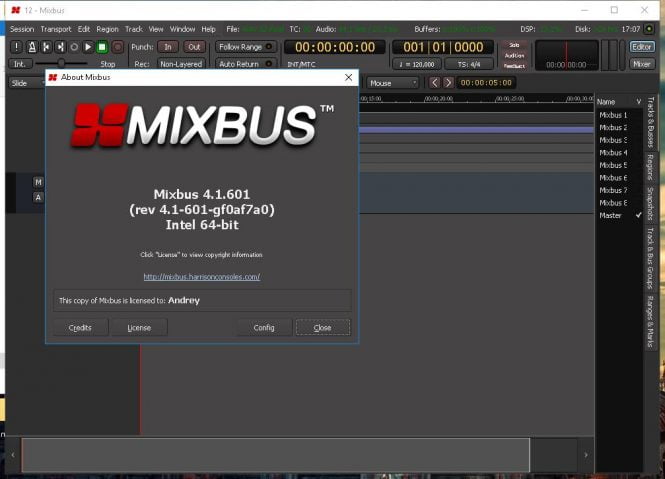
The filters on on the 32c channel plug were also very low q to the point of only generally tonal shaping without being as on point and quick to use as like an api eq or as slick and smooth as slick eq I don't do forensic work if I can help it. Is that just ever so slightly brighter or louder? Maybe. Sounds better on.nearly 100% of the time. I can hear the difference in turn the component model on/off with the EQ flat. Didn't even SOUND like something I wanted. Why would the dynamics NOT be that? Again-didn't demo. It's just a digital EQ with the curves of a 32c EQ.

I don't need to demo-it's not the component level model in 32c. It WOULD be faster to slap those on all my busses in Cubase and finish the mix there.ġ1:10:45 GMT -6 popmann said:This makes me MORE curious.
#Harrison mixbus 32c review full#
So, if these are full time limited demos, I'll get them and try it out with my current project-which is another project for a songwriter whose past stuff I created in Cubase and mixed in 32c. their audio stuff is universally good.except you know-that f'n reverb. Anyway-this isn't that.NOR is it the two setting 32c bus compressor.I imagine it's fine. I tested and was able to better MOST of my Slate Red or API 2500 settings on busses with their "clean" bus compressor. This seems like a full control digital compressor with a HPF on the side chain.rather than the fairly elaborate one in 32c now (in plug in form-not on the bus UI). I also think the compressor here seems odd.a complaint I had was that the dynamics on the busses seemed to function similar to the channel compressor, if not exactly-and that I had to use third party plugs most of the time.they "fixed that" with the Harrison Buss compressor (included in 7.2), which this isn't. If I export something wrong-I KNOW when I pull it in to do the final mix, and can correct that.
#Harrison mixbus 32c review archive#
Semi because you HAVE to archive the tracks-using 32c just forces me to do that at mix time, rather than as an unexamined process after. Believe you me-I don't cherish the need to use a different app to mix than I do to create arrangements.I've spent a good amount of time with various tape sims and even multiband limiters -because their "tape", to my ear lacks distortion, won't fart out.anyway-if I set up Cubase with busses with this on it.if the summing is the same and the imaging I hear with 32c is really the tape saturation.I'll gladly buy it and stop with the 32c semi extra step. I've maintained that the summing is different AND it has the tape saturation on the busses. I don't do forensic work if I can help it.Īnyway-this, in theory can answer the question about the summing.



It is very basic in the MIDI department and I don't use it when I'm working with MIDI (which is rarely in my case).Īlso, it is pretty CPU-intensive due to the console emulation, and you can't freeze/unfreeze tracks the way you can in Reaper.ĭo a Google search for Admiral Bumblebee's review of Mixbus and you'll get a good overview of what it can and can't do.This makes me MORE curious. Comping is pretty primitive, but actually not bad once you get the hang of it. It has a lot of useful tools (e.g., polarity optimization) but is also missing a lot of things I use all the time in Reaper, like spectral editing. Sure the mixer and console emulation are nice, but for me they aren't actually its strongest selling point. A lot of people think of it as a tool only for doing your final mix and getting an "analog" sound, but its editing tools and workflow are brilliant and it's my favorite DAW for editing audio (I've used Reaper, Logic, Sonar, Studio One, and a few others over the years). I use Mixbus even more than Reaper these days.


 0 kommentar(er)
0 kommentar(er)
